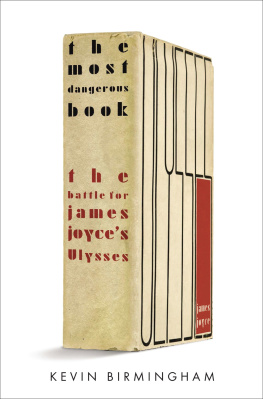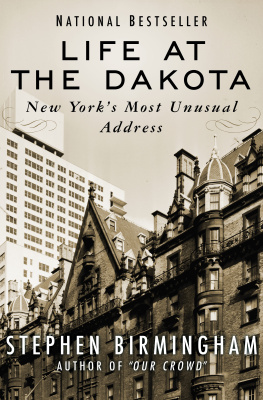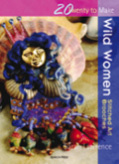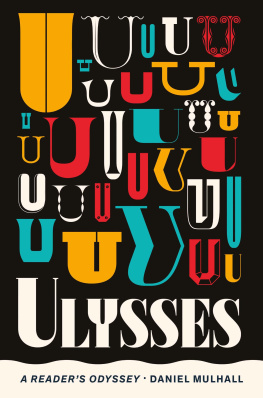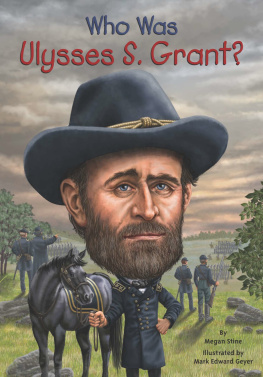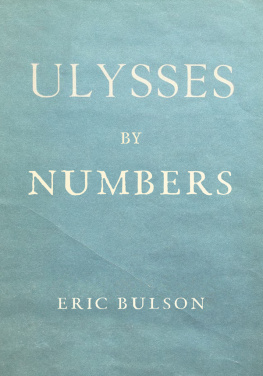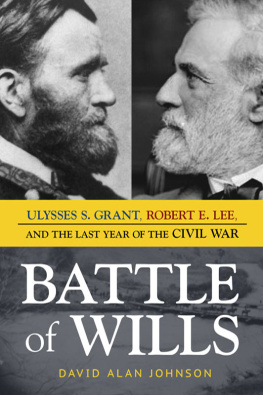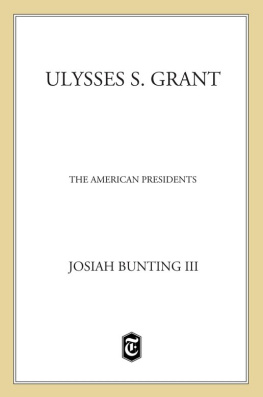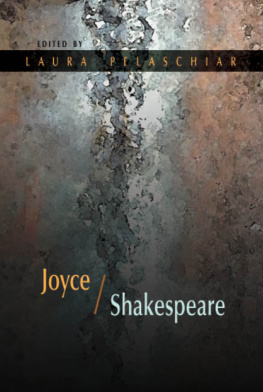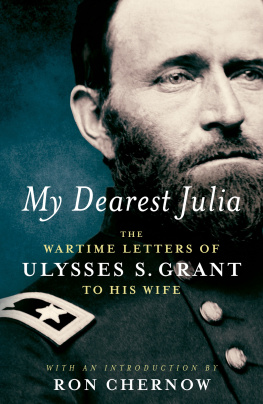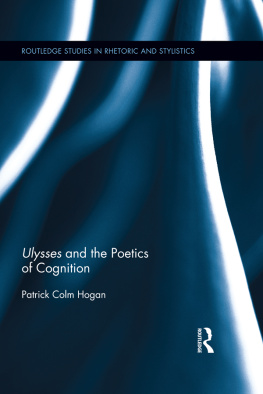Birmingham - The most dangerous book : the battle for James Joyces Ulysses
Here you can read online Birmingham - The most dangerous book : the battle for James Joyces Ulysses full text of the book (entire story) in english for free. Download pdf and epub, get meaning, cover and reviews about this ebook. year: 2014, publisher: The Penguin Press, genre: Art. Description of the work, (preface) as well as reviews are available. Best literature library LitArk.com created for fans of good reading and offers a wide selection of genres:
Romance novel
Science fiction
Adventure
Detective
Science
History
Home and family
Prose
Art
Politics
Computer
Non-fiction
Religion
Business
Children
Humor
Choose a favorite category and find really read worthwhile books. Enjoy immersion in the world of imagination, feel the emotions of the characters or learn something new for yourself, make an fascinating discovery.
- Book:The most dangerous book : the battle for James Joyces Ulysses
- Author:
- Publisher:The Penguin Press
- Genre:
- Year:2014
- Rating:3 / 5
- Favourites:Add to favourites
- Your mark:
- 60
- 1
- 2
- 3
- 4
- 5
The most dangerous book : the battle for James Joyces Ulysses: summary, description and annotation
We offer to read an annotation, description, summary or preface (depends on what the author of the book "The most dangerous book : the battle for James Joyces Ulysses" wrote himself). If you haven't found the necessary information about the book — write in the comments, we will try to find it.
Abstract: -- Ulysses, -- -- -- Ulysses
The most dangerous book : the battle for James Joyces Ulysses — read online for free the complete book (whole text) full work
Below is the text of the book, divided by pages. System saving the place of the last page read, allows you to conveniently read the book "The most dangerous book : the battle for James Joyces Ulysses" online for free, without having to search again every time where you left off. Put a bookmark, and you can go to the page where you finished reading at any time.
Font size:
Interval:
Bookmark:


THE PENGUIN PRESS
Published by the Penguin Group
Penguin Group (USA) LLC
375 Hudson Street
New York, New York 10014

USA Canada UK Ireland Australia New Zealand India South Africa China
penguin.com
A Penguin Random House Company
First published by The Penguin Press, a member of Penguin Group (USA) LLC, 2014
Copyright 2014 by Kevin Birmingham
Penguin supports copyright. Copyright fuels creativity, encourages diverse voices, promotes free speech, and creates a vibrant culture. Thank you for buying an authorized edition of this book and for complying with copyright laws by not reproducing, scanning, or distributing any part of it in any form without permission. You are supporting writers and allowing Penguin to continue to publish books for every reader.
constitutes an extension of this copyright page.
LIBRARY OF CONGRESS CATALOGING-IN-PUBLICATION DATA
Birmingham, Kevin.
The most dangerous book : the battle for James Joyces Ulysses / Kevin Birmingham.
pages cm
Includes bibliographical references and index.
ISBN 978-1-101-58564-1
1. Joyce, James, 1882-1941. Ulysses. 2. Joyce, James, 1882-1941. UlyssesCriticism, Textual. 3. Authors and publishersHistory20th century. 4. Law and literatureHistory20th century. 5. Trials (Obscenity)History20th century. I. Title.
PR6019.O9U6257 2014
823'.912dc23
2013039967
Version_1
For Dad, who taught me about free expression
M uch of the source material for this book derives from personal letters. I have made small changes to punctuation and capitalization where necessary. The occasional typo has been corrected from original documents, and abbreviations are spelled out. For example, Ezra Pounds references to L.R. or M.C.A. in various letters are changed to The Little Review and Margaret Anderson. All italics are in the original sources unless otherwise noted in the endnotes. On the rare occasions where I speculate based on available documents, I indicate that in the endnotes. Please see my website for more extensive endnotes and a complete bibliography.
W hen you open a book, you are already at the end of a long journey. It began with an author whose first challenge was to imagine the readers who would turn the unwritten pages. The author wanted to meet the audiences expectations and draw the reader in. The book would have a voice, a perspective and a consistent style. It would be accessible. If the book has charactersbe they simple or complex, sympathetic or repugnantthe author would make them believable. They would stay in character and speak in a consistent idiom. The spoken words would be in quotation marks. The characters thoughts and the storys action would be clearly distinguishable, and when the author began writing, the storys elements were sharpened. Clear boundaries staked out the pathways for the journey.
A publisher signed a contract with the author. The publisher researched the marketplace and weighed costs and risks against potential profits and demand. The publisher knew the trade. The publisher had published books before. The book had an editor who pruned and revised, who offered perspective and who sometimes said no. The book was probably advertised in various markets. The first copies were printed and bound months before publication day, and they were delivered without incident by the post office or private carriers. They were displayed openly in stores.
Whether the book is careless or thoughtful, disposable or durable, chances are the sales will dwindle. The printers will stop printing it, and the remaining copies will be sold off at a steep discount and left to languish in used bookstores. It will not change the way books are written, nor will it change the way you see yourself or the world around you. It will be swept up by the rising tide of culture and washed away. It will probably be forgotten.
If it is not forgottenif it does change the way people see the worldreviewers and critics will be able to quote from its pages freely. Radio hosts will be able to mention the title on the air. Students will be able to check the book out of a library. Professors will be able to assign the book and deliver lectures on it without the fear of being demoted or dismissed. If you purchase the book, you will not be afraid to travel with it. No one will be arrested for printing it. No one will be monitored for distributing it. No one will go to prison for selling it. Wherever you live, your government probably protects this book against piracy. Your government has never issued a warrant for this book. Your government has never confiscated this book. Your government has never burned this book.
When you open James Joyces Ulysses, none of these things are true.
S O MUCH HAS BEEN WRITTEN about whats exceptional within the pages of Joyces epic that we have lost sight of what happened to Ulysses itself. Scholars have examined the novels dense network of allusions, its museum of styles and its insight into the human mind so thoroughly that the scholarship buries what made Ulysses so scandalous: nothing, in Ulysses, is unspeakable. The book that many regard as the greatest novel in the English languageand possibly any languagewas banned as obscene, officially or unofficially, throughout most of the English-speaking world for over a decade. Being forbidden is part of what made Joyces novel so transformative. Ulysses changed not only the course of literature in the century that followed, but the very definition of literature in the eyes of the law.
This is the biography of a book. It charts the development of Ulysses from the first tug of inspiration in 1906, when it was just an idea for a short storya Homeric name appended to someone Joyce met in Dublin one drunken nightto the novels astounding growth during and after World War I as Joyce wrote out its 732 pages in notebooks, on loose-leaf sheets and on scraps of paper in more than a dozen apartments in Trieste, Zurich and Paris. And yet the years that Joyce spent writing his novel are just a portion of its story. Ulysses was serialized in a New York magazine, monitored as it passed through the mails and censored even by its most vocal advocate, modernisms unstinting ringleader, Ezra Pound.
The transgressions of Ulysses were the first thing most people knew about it. A portion was burned in Paris while it was still only a manuscript draft, and it was convicted of obscenity in New York before it was even a book. Joyces woes inspired Sylvia Beach, an American expatriate running a small bookstore in Paris, to publish Ulysses when everyone else (including Virginia Woolf) refused. When it appeared in 1922, dozens of critics praised and vilified Joyces long-anticipated novel in unambiguous terms. Government authorities on both sides of the Atlantic confiscated and burned more than a thousand copies of Ulysses (the exact number will never be known) because Joyces big blue book was banned on British and American shores almost immediately. Other countries soon followed. Over the course of a decade, Ulysses became an underground sensation. It was literary contraband, a novel you could read only if you found a copy counterfeited by literary pirates or if you smuggled it past customs agents. Most copies came from Shakespeare and Company, Sylvia Beachs Paris bookstore, where, as one writer remembered, like dynamite in a revolutionary cellar. It was the archetype of a modernist revolutionit is, in fact, the primary reason why we think of modernism as revolutionary at all.
Font size:
Interval:
Bookmark:
Similar books «The most dangerous book : the battle for James Joyces Ulysses»
Look at similar books to The most dangerous book : the battle for James Joyces Ulysses. We have selected literature similar in name and meaning in the hope of providing readers with more options to find new, interesting, not yet read works.
Discussion, reviews of the book The most dangerous book : the battle for James Joyces Ulysses and just readers' own opinions. Leave your comments, write what you think about the work, its meaning or the main characters. Specify what exactly you liked and what you didn't like, and why you think so.

